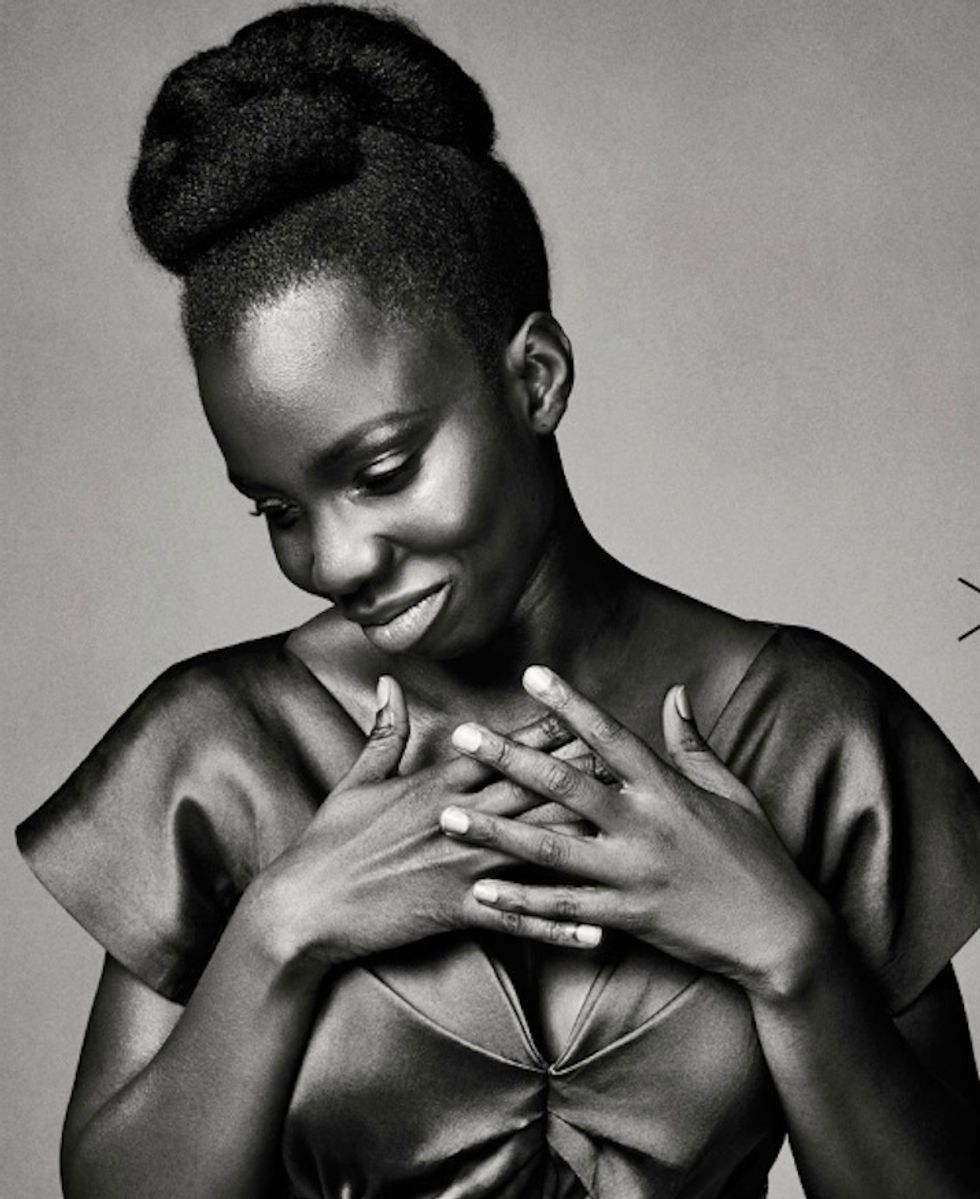Nigerian-American Actress Adepero Oduye on 10 Years of Taking Control
Interview with Nigerian-American Actress Adepero Oduye (Dee Rees's Pariah). Oduye discusses what she's accomplished, her venture into writing, and her upcoming roles.

Adepero on the set of Steve McQueen's Twelve Years A Slave
Somewhat recently returned from New Orleans where she was shooting for Steve McQueen’s Twelve Years A Slave, Adepero looks back on her month in NOLA with a smile as she talks about how remarkable it was to participate in the project — another moment which makes her confident that her career is on the path she wants it to be. While 12 Years A Slave has already drawn comparisons to Django Unchained, Adepero clarifies that the two films are completely different — after all Twelve Years A Slave is based on a true story and not a Western fantasy depiction of slavery.
I think the comparisons are going to be there. But they are completely different films. This is based on a true story and it’s an actual narrative. It’s just the hard cold painful truth of slavery and everyone who knows Steve McQueen knows that he gives it to you straight, beautiful, layered and specific. In the film, I play Eliza who is kind of similar to the main character (played by Chiwetel Ejiofor) in that she’s been living like a free woman. She’s her master’s concubine and she has two children — one for her master. She has her own house, servants, and has been living with her master on his plantation, “living the life.” But then she and her children are kidnapped without the knowledge of her master and sold into slavery, which is how she meets the main character.Basically, I think Steve McQueen is a genius. Working with actors like Chiwetel Ejiofor, Paul Giamatti, and Benedict Cumberbatch, I remember sitting at the table one day, because we would all get together for dinners, thinking to myself, “how did I get here?” It was one of those experiences that reminded me of why I act. After I did that film it cemented that I can't just do anything. Steve’s another example of someone who isn’t waiting. He just tells the stories that he wants to tell and he’s not apologetic about it.
Looking forward to participating in African cinemas, she mentions that she’s interested in what’s happening film wise in Europe and Africa and knows that those are the spaces life will lead her to. As a Nigerian raised in New York, Adepero discusses how identification may appear tricky, but can yield a bit once you recognize that it’s not meant to be stagnant.
If someone asks me what I am, I say I’m Nigerian. I also say I’m black. I’m black and I’m Nigerian and a Brooklynite. And that’s how I’ve always identified myself.
She also recognizes that spending time in Nigeria can be complicated. During her last trip to visit her mother who is now based in Lagos, Adepero notes that she “left New York a Nigerian and arrived in Nigeria as an American,” a never ending cycle that she proposes is only as destabilizing as one allows. As African-based film industries continue to expand alongside Western based explorations of Africa and race, the representations of identity in film have developed in the form of variant truths. Truths that reject single faceted depictions of history and truths that recognize their instability. Those that an actress such as herself, who has no time for dumbing anything down, can continue to engage with, contribute to and morph. As Adepero herself once wondered if people would want to see someone that looked like her on the big screen, the trajectory of her career speaks for itself.
Jade Osiberu Wants 'Christmas In Lagos' To Be A Holiday Classic
The rom-com tells a moving and hilarious holiday story of lost love and second chances with Lagos at its center.
The 10 Best African Documentaries of 2024
These groundbreaking African documentaries illuminate diverse struggles, resilience, and hope.


